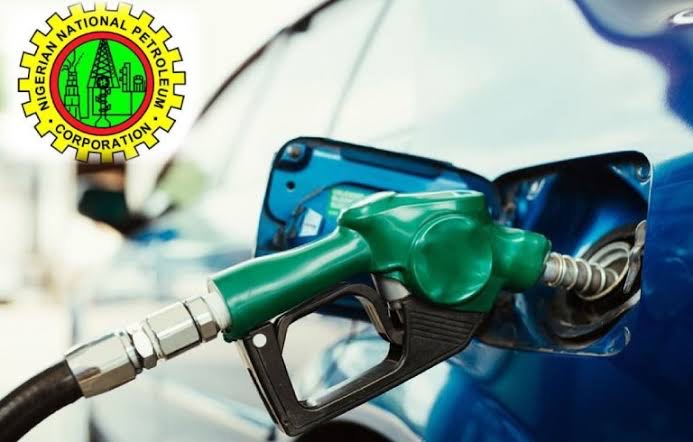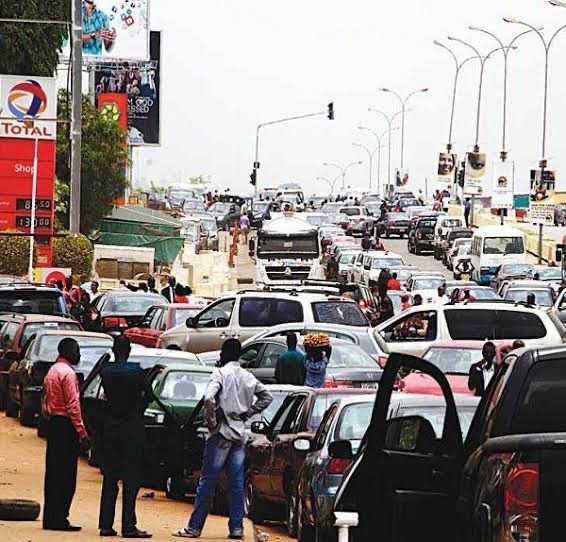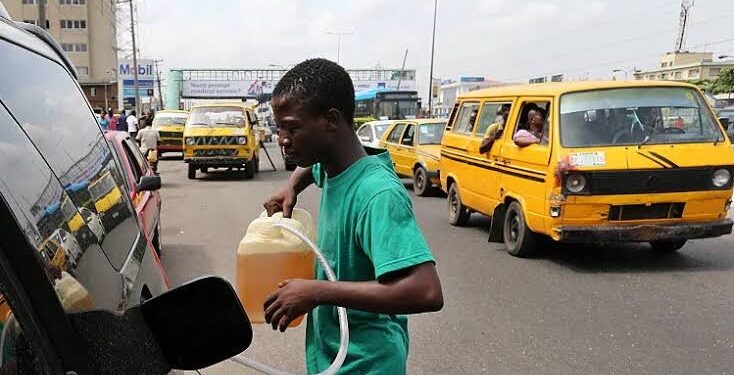The lingering fuel shortage in Nigeria has reached a critical level, as motorists in Lagos find themselves queuing endlessly at petrol stations, with some even resorting to spending the night to ensure they can fill up their tanks.
Independent marketers have taken advantage of the shortage, increasing prices to as much as 920 naira per litre, well above the normal rate. Meanwhile, large traders have kept prices relatively stable at around 618-620 naira per litre. This disparity has exacerbated the crisis, causing long queues and severe traffic delays in key areas of the city as motorists flock to petrol stations offering lower prices.
In addition to the official market, black market operators are also thriving. For instance, at Mobolaji Bank Anthony Way, black market prices have soared to as much as N1,200 per litre. This illegal trade is thriving as legal supplies dwindle and many petrol stations are unable to meet demand due to erratic delivery schedules.

Depot operators in Apapa reported that fuel barge berths have been deserted for days, indicating major problems in the supply chain. It is a rare occurrence that these spaces are unavailable due to shortages, highlighting the severity of the crisis. Marketers who have access to fuel are taking advantage of the situation to inflate prices and profit from the desperation of the people.
The Chief Corporate Public Relations Officer of the Nigerian National Petroleum Corporation (NNPC) Ltd, Mr Olufemi Sonye, said the disruption was due to glitches in unloading some vessels. He assured the public that the company was working tirelessly with all stakeholders to resolve the issue and restore normal fuel supplies. The crisis has not only affected consumers but also operators of fuel retail outlets.
The National Chairman of the Petroleum Products Retail Shop Owners Association of Nigeria (PETROAN), Mr Billy Gillis Harry, expressed frustration over the recurring supply shortages. He noted that retailers can only sell what is available and there is little they can do in the event of a supply shortage.
Labour shortages have hit businesses hard, with many stores struggling to cover operational costs such as staff salaries.

Gillis-Harry also pointed to structural problems in the market, namely the absence of competition as NNPC Ltd is the sole importer of petroleum products. The scarcity of foreign exchange has made it difficult to source supplies despite independent import permits issued by the Nigerian Midstream and Downstream Petroleum Regulatory Agency (NMDPRA).
Zalma Mustapha, vice-president of the Independent Petroleum Marketers Association of Nigeria (IPMAN), further complicated the situation, noting that the upcoming nationwide protests have contributed to queues at petrol stations. He explained that due to the uncertainty surrounding the protests, transport companies and traders are hesitant to send out trucks for fuel deliveries, fearing possible disruptions.
Mustafa urged those wanting to protest to behave responsibly, warning of possible riots and damage to property. He stressed that while the right to protest is fundamental, it must be exercised without causing violence or disruption, especially given the volatile situation.































